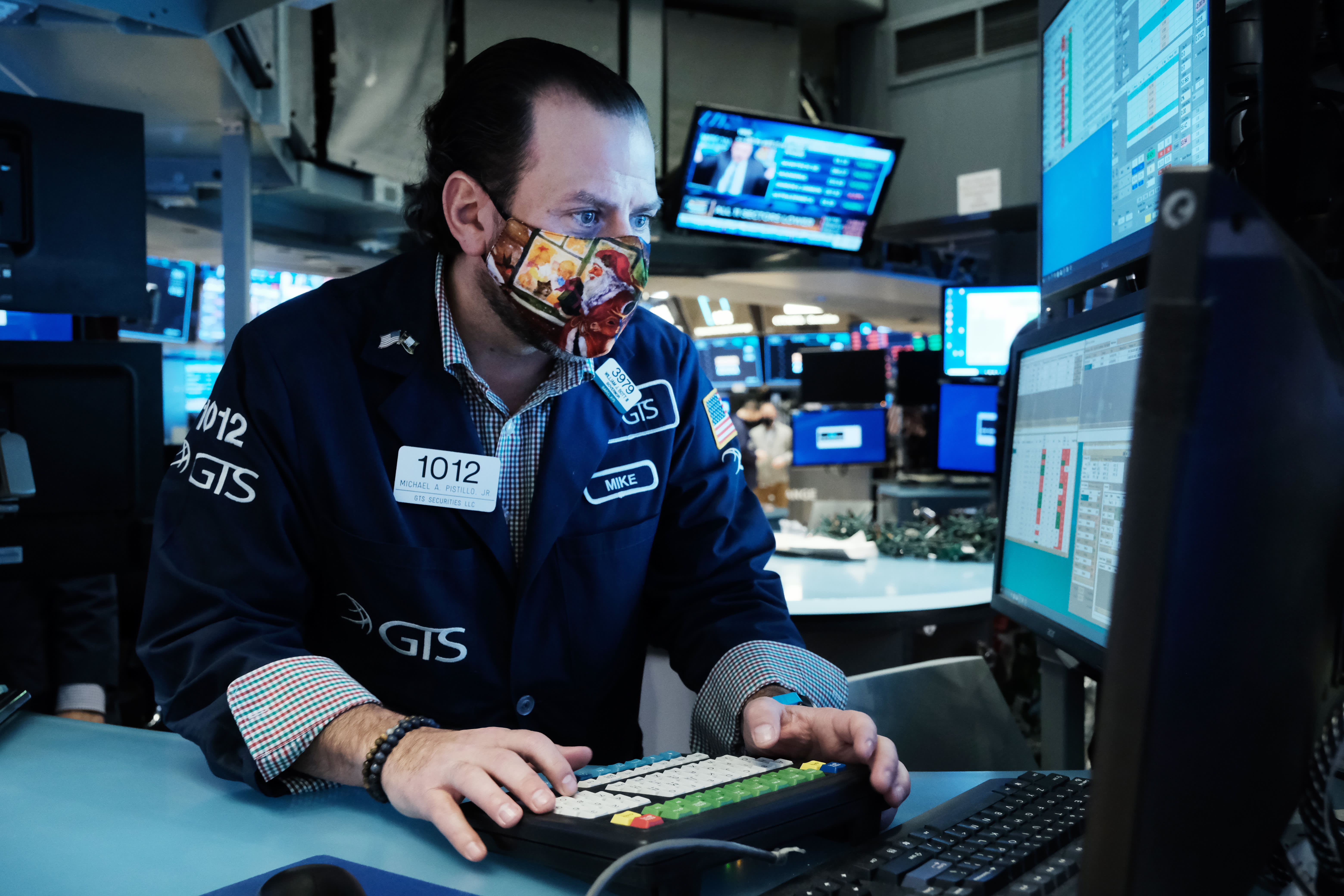Stock futures rise ahead of major bank earnings

U.S. stock futures rose during early morning trading on Friday, ahead of earnings from the major banks.
Futures contracts tied to the Dow Jones Industrial Average advanced 88 points, or 0.24%. S&P 500 futures were up 0.28%, while Nasdaq 100 futures rose 0.38%.
All of the major averages slid during regular trading on Thursday. The Dow and S&P 500 fell 0.48% and 1.42%, respectively, registering the first down day in three. At one point the 30-stock benchmark had been up more than 200 points.
The Nasdaq Composite was the relative underperformer, shedding 2.51% and snapping a three-day winning streak as technology stocks came under pressure. Microsoft declined more than 4%, while Nvidia dipped 5%. Apple, Amazon, Meta, Netflix and Alphabet also closed lower.
Investors have rotated out of growth and into value stocks amid rising rate fears, which makes future profits — including from growth companies — look less attractive.
“Big Tech stocks are selling off so dramatically as a product of, ‘yes US rates are likely to go up further this year,’ but also as investors rotate into value and cyclical trades,” said Ed Moya, senior market analyst at Oanda. “Wall Street is trying to get a sense of how much growth is going to slow and the banks will start providing some insight on Friday,” he added.
Companies have started posting quarterly updates, but reporting season will get into full swing on Friday when JPMorgan, Citigroup and Wells Fargo release results before the market opens.
A slew of economic data will also be released Friday, including December retail sales numbers. Economists are expecting the print to show a decline of 0.1%, according to estimates compiled by Dow Jones. During November sales rose by 0.3%, slower than the 0.9% economists had been expecting.
Industrial production numbers will also be reported, with the Street expecting a 0.2% rise. Consumer sentiment figures will be released later Friday morning.
The reports come as investors closely watch all of the latest inflation readings. The producer price index rose 0.2% month over month in December, the Labor Department said Thursday, which was lower than the 0.4% economists were expecting. The report followed Wednesday’s consumer price index reading, which jumped 7% year over year during December for the fasted annual rate since 1982.
“Economic growth will remain strong, and fears about inflation and the Fed will cool from a boil to a simmer,” said Brent Schutte, chief investment strategist at Northwestern Mutual Wealth Management Company. “Supply chains and the labor market are going to catch up and that will essentially kill two birds with one stone,” he added.
With Thursday’s move lower, the major averages are now in negative territory for the week. The Dow and S&P are on track for their second straight negative week, while the Nasdaq is on track for a third week of losses.




